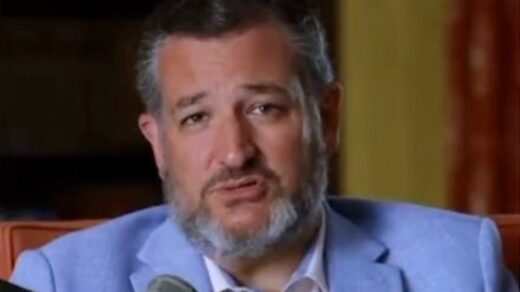Our Activism Can’t End With the Presidential Election
It feels as though every political event in our country over these last four years has been building up to this presidential election. We continue to be reminded of the immense importance of our vote by everyone from celebrities and influencers to activist groups to the news media and, of course, politicians. The weight of this election is especially salient for those of us whose safety and hard-fought civil rights have been explicitly threatened, including LGBTQ people, immigrants, Black people, and other people of color. The clear message so many of us receive is that when we each cast our vote for president, we are effectively determining the fate of our communities.
While our vote for president absolutely does help to shape the future, there’s an important truth that has been overlooked in this election season frenzy: Our rights can be strengthened or eroded at all levels of government, and the presidential election alone cannot guarantee our safety. Only by understanding this reality — and committing to ongoing action — will we be able to effect fundamental, lasting change.
State and local governments have a major impact on our rights and freedoms, and we all feel this in our daily lives. Legislation and policies that they pass (and how they are enacted) dictate what we learn in school, whether we can access culturally competent medical care, how our communities are policed and experience the judicial system, how public services show up for us and much more. For example, states can choose whether to require sex and/or HIV education to be medically, factually, or technically accurate. They can decide whether insurance companies are allowed to refuse coverage for gender-affirming health care, which leaves transgender people facing inconsistent care options. With regard to policing, officials chosen in direct elections such as City Council members, sheriffs, and judges have the authority to determine what constitutes a crime, decide how to interact with Immigration and Customs Enforcement, run local jails, set bail amounts, and hand down sentences and penalties. Finally, states’ and cities’ power to allocate public funds can single-handedly strengthen or weaken a range of services and programs from food pantries to sanitation to police departments and more.
These are just a few of the many ways that politics at every level shape our world — and they are opportunities for us to build a brighter, more affirming future for those living at the margins or the intersection of multiple marginalized identities. But it means that we must step up to advocate for our communities more than once every four years. Consistently showing up to vote for state and local candidates who pledge to champion the issues most important to us is an important step, as elections for these positions usually happen more frequently. But our responsibilities don’t begin or end on Election Day.
Elected officials are accountable to the people they represent and make decisions that reflect the feedback they receive from the people whose votes put them in office. So let’s make ourselves known to them: Let’s show up to their town hall meetings, call their offices, tweet at them, and even schedule one-on-one meetings so that they know we are keeping track of how they fulfill their promises — or don’t. We can join forces with community groups when our voices need to be amplified, and we can take to the streets in protest when leaders fail us. Every single one of these actions is a way to make all levels of government work for us.
I know this truth can get lost in the seemingly unending chaos of current events. The commotion surrounding presidential elections can be so loud that it drowns out information about the extent to which local and state politics affect us, and voter fatigue limits our capacity to pay attention to political information across the board. Even so, and especially this year, we must remember that the work required to make our communities truly equitable, affirming and safe goes beyond simply showing up as red or blue on an election map.
How does this play out in our everyday lives? Consider that New York State is often touted as a progressive haven but just this year has failed to pass a number of common-sense progressive bills. This includes the repeal of an antiloitering statute that ends up disproportionately criminalizing trans women of color (commonly known as the “Walking While Trans” Ban), a law to require the collection and reporting of more accurate hate-crimes data, and a response to the hardships of the COVID-19 pandemic that would protect people from being forced into homelessness because they can’t pay their rent. Advocate groups such as the RiseOut initiative at the LGBT Community Center, where I work, have been monitoring these proposals closely. And yet when we ask New York State lawmakers why the bills have not moved forward, we hear them say that they lack visible, vocal, and continuous public support. But we know that we can and must overcome that obstacle, so we will continue working to mobilize New Yorkers across the state and make sure they know why and how to engage with local politics on Election Day and beyond.
Political involvement has never been “all or nothing.” There’s more to it than simply deciding to vote for president or taking no action at all. We need to consider our vote as just the first step of realizing the change we want to see. Let’s show up and cast our vote — but let’s also dive into the many year-round opportunities that will hold all levels of government accountable to us and the needs of our communities.
Glennda Testone is executive director of the Lesbian, Gay, Bisexual, and Transgender Community Center in New York City.
Original Article on The Advocate
Author: Glennda Testone




